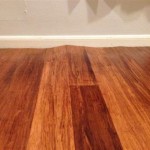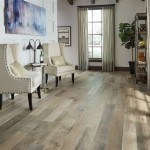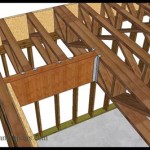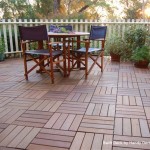Enclosed Race Trailer Flooring: A Comprehensive Guide
Enclosed race trailers are essential for transporting and protecting valuable racing vehicles. A critical, often overlooked component of these trailers is the flooring. The right flooring not only safeguards the trailer bed but also provides a functional and safe surface for working on and securing race cars, tools, and equipment. Selecting the appropriate flooring material requires careful consideration of factors such as durability, weight, resistance to chemicals and moisture, ease of maintenance, and overall cost.
The primary function of enclosed race trailer flooring is to withstand the significant stress and wear associated with the transport and management of race cars. These floors are subjected to heavy loads, potential spills of oil, fuel, and other automotive fluids, and the impact of tools and equipment. The chosen flooring must be robust enough to resist cracking, denting, and other forms of damage that can compromise its structural integrity and create safety hazards.
Furthermore, the flooring plays a crucial role in securing the race car within the trailer. D-rings, E-track systems, and other tie-down anchors are often integrated directly into the flooring. The strength and integrity of the flooring material are paramount to ensure these anchors provide a secure and reliable hold, preventing the vehicle from shifting during transit. Improperly installed or inadequate flooring can lead to anchor failure, potentially resulting in severe damage to the race car and the trailer itself.
Key Considerations for Selecting Race Trailer Flooring
Choosing the right flooring for an enclosed race trailer involves carefully evaluating several factors. These factors determine the flooring's suitability for the specific demands of racing applications. Overlooking any of these key considerations can lead to premature wear, costly repairs, or even safety concerns.
The first and foremost consideration is the
durability
of the material. Race trailers endure considerable abuse, including the weight of the race car, the movement of equipment, and the constant pressure of tie-down straps. A durable flooring material must be resistant to scratches, dents, and abrasions. Materials like coin grip rubber, diamond plate aluminum, and specialized epoxy coatings are known for their robustness and ability to withstand heavy use. The specific type of racing and the frequency of use will influence the required level of durability. For example, a trailer used for transporting a lightweight kart might not require the same level of durability as a trailer carrying a heavy stock car.Another critical factor is the
resistance to chemicals and moisture
. Race cars are often associated with spills of oil, fuel, coolant, and other corrosive fluids. The flooring material must be impervious to these substances to prevent staining, degradation, and potential structural damage. Furthermore, the flooring should be resistant to moisture, especially in environments with high humidity or where the trailer is exposed to rain or snow. Moisture can lead to the growth of mold and mildew, which can not only damage the flooring but also create an unhealthy environment. Epoxy coatings and certain types of rubber flooring are particularly resistant to both chemicals and moisture, making them ideal choices for race trailers.The
weight
of the flooring material is also a significant consideration. A heavy flooring material can add substantial weight to the trailer, reducing its fuel efficiency and potentially exceeding its weight capacity. Lighter materials, such as aluminum or thin-profile rubber flooring, can help minimize the overall weight of the trailer. However, it is important to balance weight considerations with the need for durability and resistance to damage. A lightweight material that is easily damaged may not be a cost-effective choice in the long run. The type of trailer and the vehicle being transported will influence the weight constraints. Larger trailers and lighter racing vehicles allow for a broader range of flooring options, while smaller trailers and heavier vehicles will necessitate more careful consideration of weight.Popular Flooring Options for Enclosed Race Trailers
Several flooring materials are commonly used in enclosed race trailers, each offering its own advantages and disadvantages. Understanding the characteristics of these materials is crucial for selecting the option that best meets the specific needs of the trailer owner.
Plywood
is a common and relatively inexpensive option. It provides a solid base for other flooring materials and can be sealed to improve its resistance to moisture. However, plywood is susceptible to damage from moisture and chemicals, and it may require frequent maintenance or replacement. Plywood is often used as a subfloor, providing a stable and level surface for the primary flooring material. The grade and thickness of the plywood will affect its durability and resistance to warping or cracking.Diamond Plate Aluminum
is a durable and visually appealing option. It is resistant to chemicals and moisture, and its textured surface provides good traction. However, aluminum can be expensive and may be prone to denting under heavy impacts. The reflective surface of aluminum can also create glare, which may be a concern for some users. Diamond plate aluminum is often used in high-end race trailers due to its combination of durability and aesthetic appeal.Coin Grip Rubber Flooring
is a popular choice due to its durability, slip resistance, and ease of cleaning. It is also relatively inexpensive and can be easily installed. However, some types of rubber flooring may be susceptible to staining from certain chemicals, and it may not be as visually appealing as other options. Coin grip rubber flooring is available in various thicknesses and colors, allowing for customization to suit individual preferences.Epoxy Coatings
provide a seamless and durable surface that is resistant to chemicals, moisture, and abrasion. Epoxy coatings can be customized with different colors and textures, and they can be applied over existing flooring materials. However, epoxy coatings can be expensive and require professional installation. The quality of the epoxy coating and the preparation of the underlying surface are crucial for ensuring a long-lasting and durable finish. Epoxy coatings are often used in high-performance race trailers where durability and chemical resistance are paramount.Installation and Maintenance of Race Trailer Flooring
Proper installation and maintenance are essential for maximizing the lifespan and performance of race trailer flooring. Regardless of the chosen material, careful attention to detail during installation and regular maintenance will help prevent premature wear, reduce the risk of damage, and ensure a safe and functional environment.
Installation
methods vary depending on the type of flooring material. Plywood, for example, is typically fastened to the trailer frame using screws or nails. Diamond plate aluminum can be glued or screwed in place. Rubber flooring is often glued to the subfloor. Epoxy coatings require careful surface preparation and the application of multiple coats. It is crucial to follow the manufacturer's instructions for installation to ensure a secure and durable bond. Improper installation can lead to loose flooring, gaps, and other issues that can compromise the flooring's performance. In many cases, professional installation is recommended, especially for complex or specialized flooring systems.Maintenance
typically involves regular cleaning to remove dirt, debris, and spills. The cleaning method will depend on the flooring material. Plywood can be cleaned with a damp mop and mild detergent. Aluminum and rubber flooring can be cleaned with a pressure washer or a hose. Epoxy coatings can be cleaned with a variety of cleaning solutions, depending on the specific type of coating. It is important to avoid using harsh chemicals or abrasive cleaners that can damage the flooring. Regular inspection of the flooring for cracks, dents, and other signs of damage is also important. Any damage should be repaired promptly to prevent it from worsening. Replacing damaged sections of flooring or reapplying epoxy coatings can help extend the lifespan of the flooring and maintain its structural integrity. Regularly inspecting and tightening tie-down anchor points is also crucial for ensuring the secure transport of the race car.Choosing the right flooring for an enclosed race trailer is a significant investment that can significantly impact the trailer's functionality and longevity. By carefully considering the factors discussed in this article, trailer owners can make informed decisions and select a flooring that meets their specific needs and budget. Proper installation and maintenance will further ensure that the flooring provides years of reliable service, protecting both the trailer and the valuable race car it transports.

Kenny S Race Trailer Floor Garage Flooring Llc
Flooring For Enclosed Trailer The Garage Journal

Trailer Flooring Sports Utility Trailers Enclosed Open

Trailer Flooring Liners Cargo Anti Slip Garage Llc

Trailer Flooring Guide

Snowmobile Trailer Flooring Installation Mateflex

Black Marble Sheet Vinyl 53825 Floor Source And Supply

Enclosed Race Trailer Flooring Pelican Parts Forums

Trailer Flooring Sports Utility Trailers Enclosed Open

Enclosed Trailer Upgrades Flooring Painting Walls
Related Posts








